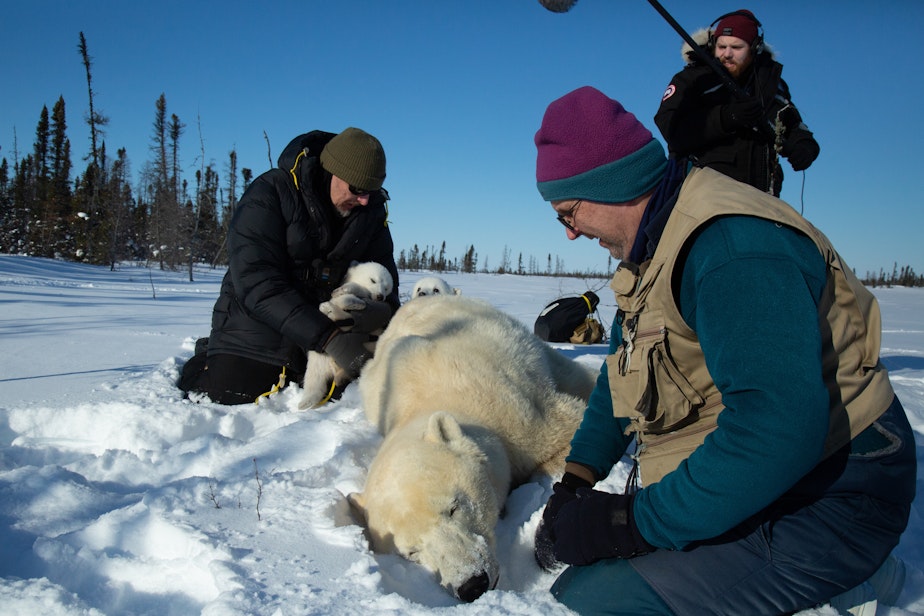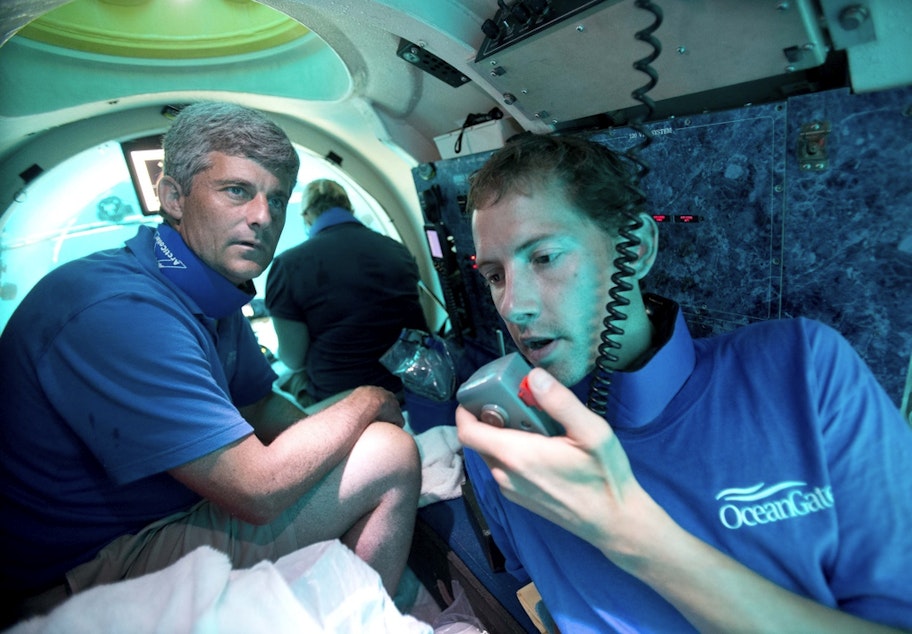What does 'restricted racing zones' sound like to you? Today So Far

- Seattle is considering a new policy to tackle street racing on city roads.
- King County Metro is inviting back all the employees who were fired for not complying with the vaccine mandate.
- A common awkward situation for Washingtonians may become a thing of the past. Oregon lawmakers have voted to ease up on the state's ban on self-serve gas.
This post originally appeared in KUOW's Today So Far newsletter for June 23, 2023.
Seattle is considering a new policy to tackle street racing on city roads. The main idea is to allow automated traffic cameras to push back against street racing. This is possible thanks to a new law at the state level, and Seattle is lining up its own code with it.
Along with this proposal is the creation of “restricted racing zones” where such camera enforcement would be targeted. There are six specific spots that the Council already has in mind, mostly around Alki and Sand Point Way. It’s early in the discussion for this plan, which is going through the committee process. My suggestion for the Council, when it comes to tweaking this proposal: Nix the term “restricted racing zones.” I don’t know where that came from, but, in a way, it sounds like you are restricting street racing to those zones in Seattle.
“Hey, you want to go street racing?”
“You bet I do. Let’s go over to Sand Point Way! That’s where Seattle has a racing zone we can use.”
“Sweet! But I get to be Toretto this time. You get to be O’Conner. Let’s go live life a quarter mile at a time.”
I would suggest, “anti-street racing zones.” Perhaps, “excessive speed enforcement zones.“ Or maybe “you’re not as cool as you think you are and your car is essentially a giant snap-together model that lazy children could put together — not even the hardcore glue and paint kind, the snap / sticker toys that anyone can figure out … zone.” That last option might not fit on a sign though.
Another reaction a lot of Seattleites are likely to have is, “Why isn’t a zone being proposed for my neighborhood?” I used to live off of 35th Avenue NE, or what locals call “I-35.” I would regularly be woken up around 2 a.m., 3 a.m., 4 a.m. by raging, rumbling engines, and screeching tires. My windows would actually shake as they passed by. Despite speeding away, these cars could be heard taking corners and rumbling throughout the neighborhood for quite a while after that. The worst part was that me, wearing my Scorpions T-shirt and generally sporting my “Hey, be cool man” attitude, turned into that guy. You know that guy, the type of person who would yell, “It’s 2 o’clock in the morning and I have to work early, you insufferable hellion!”
So six “restricted racing zones” (gosh, they really need to change that term)? How about 20 zones, with $2,500 fines. Plus, if they get caught, they get locked in a pillory in front of city hall where children can mock them and throw tomatoes at their heads. I offer all these suggestions to the Seattle City Council for free. More on this story here.
Elsewhere on the street, King County Metro is making another post-pandemic move. It’s inviting back all the employees who were fired for not complying with the vaccine mandate.
The transit agency has struggled to restaff its routes. It’s trying to hire as fast as possible. Getting back its former employees is part of that effort, but the offer does come with some conditions. The employees can come back, as if their job was simply paused, if they drop any claims against Metro. Only about 100 employees were dropped over the vaccine mandate, and 19 filed tort claims. Those claims were generally over denials for religious exemptions.
KUOW’s Diana Opong spoke with Seattle Times reporter David Kroman about this recent development. Read more here.
In other news from the street, a common awkward situation for Washingtonians may become a thing of the past. Oregon lawmakers have voted to ease up on the state's ban on self-serve gas.
When I moved to Oregon, years ago, I rolled up to a gas station, I got out and grabbed the pump, before an attendant quickly ran up to me and asked just what the heck I thought I was doing. It took me a few tries before catching on that Oregon does not allow drivers to self-serve at the gas pump. A lot of Washington drivers who have crossed the border into Oregon probably have a few experiences like this. Ever since the 1950s, Oregon has required that gas station attendants pump gas and has banned self-serve.
When I moved back to Washington, I must admit, I waited inside my car at a gas station pump a couple times before I remembered where I was.
Well, times are changing. Oregon's House and Senate have approved new rules for gas stations. Half of the pumps will be self-serve, and half will be required to have attendants. Read more here.
The Friday Five: News you may have missed this week, and other cool stuff on KUOW.org
- Election workers are facing threats and harassment as they brace for 2024
- How to lose money if you’re a working woman? Have kids
- U.S. reading and math scores drop to lowest level in decades
- 'No kill' meat, grown from animal cells, is now approved for sale in the U.S.
- California legal battle over gas stoves stirs uncertainty for energy policies across the West Coast
AS SEEN ON KUOW

Host Chris Morgan (left), polar bear researcher Nick Lunn (center) and producer Matt Martin (right) gather by a mother polar bear and her two cubs on the edge of a frozen lake near Hudson Bay. Chris holds the cub close to his chest to keep the cub warm. The mother polar bear was safely drugged for research purposes. The latest episode of "The Wild" podcast covers calorie counting for polar bears and what the future could look like for the Hudson Bay polar bear population. (Paul Bikis)
DID YOU KNOW?
TSF reader Tyler recently wrote in and noted that I commonly reference work from Northwest News Network, or folks from other news outlets who are featured on KUOW. Tyler noticed that “it seems like there are a few players in the region that all work together.” Contributors and correspondents and affiliates — Oh my! What’s the deal with all this? The short answer is that public radio stations help each other out and it’s not uncommon for them to trade reporting.
The most common partnership that you’ll notice on KUOW is Northwest News Network, which pulls in reporting from across the region, provided by various public radio stations. I asked KUOW Editor Derek Wang for a Northwest News Network elevator speech, and he sent this over: “The Northwest News Network is a collaboration amongst almost all of the public radio stations in Washington and Oregon, dedicated to covering stories and trends across the region. Their work can be heard on NPR and across Washington, Oregon and in parts of Idaho and Alaska. Founded in 2001, it was the first of its kind collaboration in public radio and several other regional collaborations were modeled after it."
Stations not only contribute reporting, some contribute dedicated reporters to the network. For example, KUOW’s Olympia correspondent Jeanie Lindsay is one such reporter. This is why you hear reporting from across the Northwest on KUOW. Those stories also get featured on KUOW.org, and that is why I sometimes talk about them here on TSF.
ALSO ON OUR MINDS

Lost submersible raises troubling questions for the adventure tourism industry
Critics say this growing sector of the travel industry largely has avoided government oversight, despite a history of accidents and fatalities. For people paying to make trips with a guide or an adventure travel company, it's often buyer beware.

